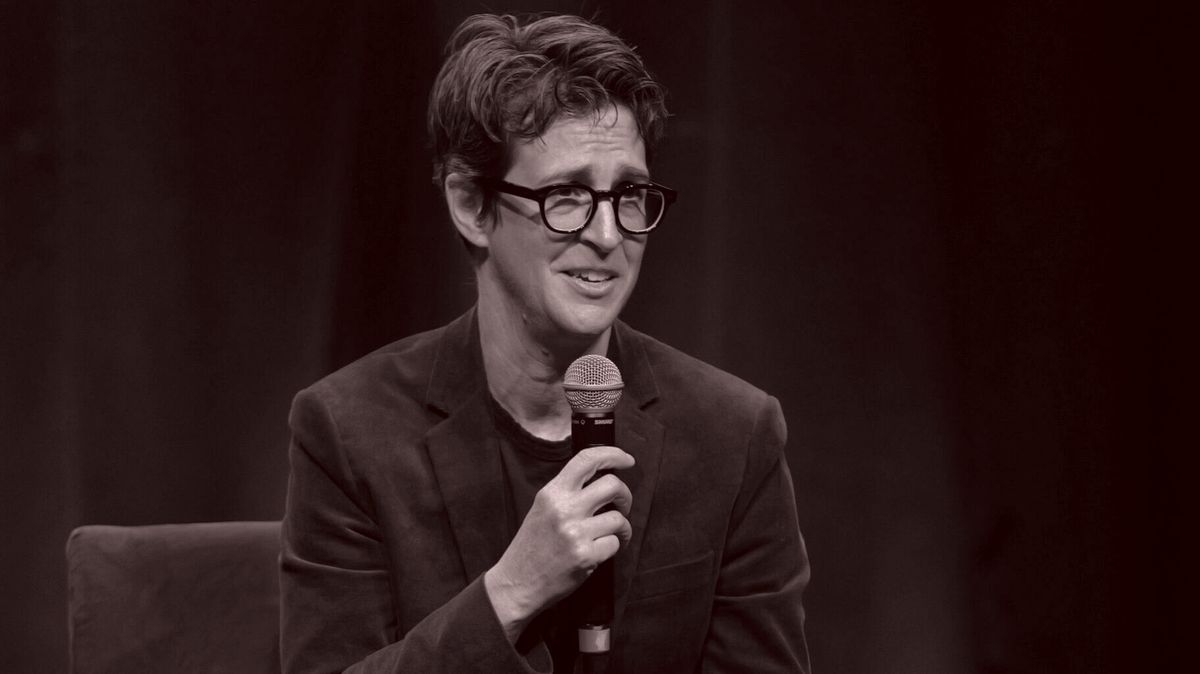Welcome back to What I’m Hearing, and a happy Academy Awards weekend to those
who still celebrate (more on that below). We discussed Oscars gambling yesterday on The Town, and despite Anora solidifying itself as the favorite, the more voters I speak to this week at events like the Academy’s nominees reception and last night’s Universal party, the more I think there could be a surprise best picture on Sunday. Which would be fun! Speaking
of…
🚨🚨 Oscars ratings contest!: Reply to this email with your guess of the Live+Same Day total viewership, per Nielsen. (Remember, last year’s Barbenheimer-boosted number was 19.5 million, but Sunday’s show will air live for the first time on ABC and Hulu.) Closest without going over receives Puck merch and a collector’s item Wicked doll with the accidental
porn site on the packaging. Good luck!
Not a Puck member? Just click
here. Got a news tip or an idea for me? Just reply to this email or message me on Signal at 310-804-3198.
Let’s begin…
|
- Kathy
Kennedy contorts around confirming her exit: I don’t usually descend into lame back-and-forths with trade reporters, but this one is particularly amusing. Deadline’s Mike Fleming, who never saw a movie producer’s anal cavity he couldn’t burrow inside, did a hilariously sycophantic interview with Kathleen Kennedy after I broke the news
on Monday that the Lucasfilm president will announce her exit by the end of the year. It was… quite something.
Addressing the news, Kennedy basically confirmed it, saying that she and Disney’s Bob Iger and Alan Bergman have a plan for succession at Lucasfilm, with “every intention of making an announcement months or a year down the road.” Which is exactly what I reported. (It’ll be months, not a year.) But instead of acknowledging the confirmation,
Fleming attacked me personally and bizarrely claimed I had reported that Kennedy “was retiring.” Stupid. In fact, I wrote that Kennedy will continue to produce, maybe with her husband, Frank Marshall, which she also confirmed. “I will die making movies,” she said, foreshadowing her post-Lucasfilm plans.
I’ve already wasted too much space on this. Kennedy’s exit announcement will come sometime later this year, we will all move on, and Fleming will embarrass himself on
other topics. (One influential figure at Penske Media, which owns Deadline, already reached out to me to apologize for Fleming’s behavior.) Partial blame here goes to Kennedy’s personal publicist Simon Halls, who’s been busy this week spinning journalists that Kathy’s timetable is “all speculative” and “there’s nothing new here,” and more B.S. like that, which has popped up in some articles. Now, in Kathy’s own words, we know Monday’s news was accurate and she’s planning out her
exit. Thanks, Mike.
- Has Zaz inched closer to a split?: Putting aside the problems in the TV division… and at the film studio… and at the video game studio, today’s Warner Bros. Discovery earnings were pleasing enough to bump the stock price about 5 percent. More than 6 million new streaming subscribers, with a goal of 150 million total by 2026, as Max rolls out around the world, plus more debt reduction and a plan to
double streaming profits. It was enough to convince MoffettNathanson analysts that C.E.O. David Zaslav may just be able to grow streaming faster than TV melts—at least in the short term. “When we put these two diverging businesses together, DTC+Studio should be big enough contributors to largely offset the declines at Networks over the next couple of years,” they wrote. And now that Zaz is separating out the cable channels, he can more easily hunt for
someone—anyone?!—to take them off his hands, preferably without killing the cash flow that keeps the company afloat.
- Oscar party politics, CAA edition: Bryan Lourd is again upstaging the MPTF’s traditional Night Before fundraiser, as well as his own agency’s Friday night Oscar party, with an event at his house on Saturday night. Bob Iger, Donna Langley, the top execs and select CAA clients are
invited, though it’s unclear if new CAA signee Kamala Harris will make it again this year.
After I wrote about Lourd’s “shadow” V.I.P. party last year, CAA client Bill Maher was so furious he wasn’t invited that he left for WME. And Maher wasn’t alone in his anger. There’s always a big
internal brouhaha over who gets the nod and who doesn’t. And while Lourd would never say so publicly, you know he kinda loves that. His Saturday party is pretty clearly meant to make the agency’s Friday get-together at Living Room look like the kiddie table—and those cherished clients who get the Saturday invite can feel extra special. Lourd, himself, has even ghosted CAA’s Friday event, hammering home the point that the regular company party is beneath him. Yes, he’s a grown man.
- Speaking of CAA and the Oscars…: It’s now been a week since news broke that CAA and Entertainment 360 had parted ways with The Apprentice filmmaker Ali Abbasi after he groped another CAA client at the agency’s Golden Globes party. (I’m still not quite over the irony at the director of the movie about the “Grab ‘em by the pussy” president embroiling himself in his own groping scandal.) It’s still unclear whether Abbasi will attend
Sunday’s Oscars, where his Trump film is up for two awards. Abbasi didn’t have a ticket as of a couple days ago, but he was trying to get one. (His remaining U.K. manager didn’t return my email.) It’s an odd situation. Everyone at awards season events seems to know and want to discuss the identity of the gropee. Knowing who it is, I’m a bit surprised he would complain, but from people I’ve talked to, the interaction was more than just a “slap on the rear,” as Abbasi
described it in his public apology. Even the tabloid media, either out of respect for the victim or fear of being shamed or sued, has so far refrained from naming him. It’s true that Abbasi was the one who dropped CAA and 360 after they confronted him about the incident and explained to him that there would be repercussions. But I’m told he later had second thoughts and
reached out through an intermediary to see if there was interest in restarting the relationship. There was not.
- Dana’s Morgan Stanley moment: Did you notice that Disney TV chief Dana Walden is making her debut as a presenter at the Morgan Stanley media conference next week? Might that be another tiny boost in the C.E.O. succession race? Disney sources are downplaying the move, noting that the other internal candidates—Alan Bergman,
Josh D’Amaro, and Jimmy Pitaro—often present at investor conferences. And when I saw Walden at the Oscars nominees event on Tuesday, she also positioned the presentation as business as usual. But it makes sense that Iger is mixing it up, giving his direct reports more public duties. For instance, Bergman and D’Amaro are speaking at SXSW next month, not unusual for a film exec but less of a natural spot for a parks person like D’Amaro.
- Netflix and Spill, second half of 2024 edition: I’ve got three takeaways from the latest Netflix dump of viewership data for the six months ended December 31, 2024:
1. Fresh evidence that Netflix should be licensing out underperforming titles: Netflix is super top-heavy, meaning the top 1 percent of titles accounted for almost 24 percent of total viewing time, and the top 10 percent for 68 percent of all viewing. The rest of the titles are
sitting there relatively unwatched, which again raises the question: Might they be more valuable to another platform? And might Netflix make more money for shareholders by licensing these titles elsewhere?
2. Studio scorecard: Universal wins: Of the top 100 most-viewed movies, a majority were either Netflix originals or foreign films. But licensed Hollywood titles—either one-offs or part of an output deal from a studio—did really well, as always, especially since Netflix
doesn’t have global rights on many of them. My scorecard, based on which of the five major studios originally produced/distributed the movie:
1) Universal: 17 films (including two Minions & More compilations and a Woody Woodpecker that went direct to Netflix)
2) Sony: 13 films
3) Paramount: 7 films (including Beverly Hills Cop: Axel F, which went direct to Netflix)
4)
Disney/Fox: 6 films
5) Warner Bros.: 0 films
3. Netflix created its own NFL playoffs… without the NFL: The only live events that regularly generate 50 million viewers on television are the Super Bowl (more than double that), and the two NFL conference championship games. But the data shows that Paul vs. Tyson, the Jake Paul–Mike Tyson
fight, did 49 million views. It’s not apples to apples—lots of people watched the fight after it was live, and the Netflix numbers are worldwide, not U.S. But Netflix delivered an extraordinary number of eyeballs to a live “sporting” event that it created from scratch, without having to pay an astronomical rights fee. A massive flex.
|
Now on to a new angle on how to fix the Oscars…
|
|
|
The overt internationalization of the Oscars, while cool in many ways, has fundamentally
altered the taste of the awards body, and it threatens to further niche-ify the lucrative telecast when it most needs a shot of populism.
|
|
|
This year’s Academy nominees reception and class photo event was an understandably muted
affair. Due to the L.A. fires, the usual boozy lunch during the Oscars voting window—an annual showcase for enthusiastic, face-to-face politicking, and the occasional dog stunt—became a more casual cocktail hour on Tuesday night after
voting closed, and before the individual branch dinners. Still celebratory, but Appropriate with a capital A, as Academy president Janet Yang has been meticulously messaging this season.
The nominees I chatted with were as pumped as ever, of course. But with everything going on, it’s hard not to observe the hoopla leading up to Sunday’s Oscars through the lens of diminishing
relevance and the financial and cultural realities that are transforming Hollywood into a quaint vestige of its former self. The Oscars, which were conceived by the original 1920s movie moguls as a grand promotion for the nascent art of American filmmaking, have always mattered so much inside the industry because they have always mattered outside, too. People in the Real World care about this stuff, we always told ourselves. But with the exception of last year’s social
media–fueled Barbenheimer phenomenon, which led to a slight uptick in ratings, the box office and cultural relevance of the nominated films have been in decline for some time, as has the TV audience.
We all know the reasons: the end of monoculture; the Academy’s stubborn unwillingness to evolve its broadcast for the times, as the Grammys have; and, most of all, I think, the divergence in
the taste of mainstream American audiences and the people who make movies—especially movies outside the U.S. As a result, even as the nominees congratulated each other on Tuesday over mini pizzas and squash fritters (delicious, by the way), it was hard not to wonder why the Academy wasn’t doing more to evolve its own organization in ways that can reinvent and supercharge its signature asset: the Oscars show.
After all, it’s sort of the only thing that matters. AMPAS made $147 million in 2024 from the Oscars and “related activities” like the Governors Ball, the vast majority of the overall income for the nonprofit group. As viewership for the show has dipped below 20 million, and as the expiration of the current Disney/ABC deal nears in 2028, Academy C.E.O. Bill Kramer has become concerned enough about the possibility of a haircut in its next broadcast deal that he launched a
separate fundraising drive. In short, it’s crunch time for the Oscars.
I’ve already written about how to improve the annual telecast, and why an organization with 55 members on its board of governors is set up for indecision and chaos. But an underappreciated—and, yes, potentially controversial— aspect of the
Academy’s problem lies in the makeup of the organization itself: At this point, there are too many foreign members.
|
Hear me out. I swear this is not an anti-D.E.I. screed, and I’m not trying to land a
spot in the Trump-approved White House press corps. As we know, the Academy has been adding members at a furious pace over the past decade. The organization, which counted around 6,100 voting members in 2014, now boasts nearly 10,000. For reasons including racism and cronyism, the Academy was overwhelmingly white, male, and older, and it tended to produce nominees that were white, male, and older. In 2015, the organization finally recognized the severity of its problem. But to
diversify without kicking elderly members out and prompting mob riots at the Motion Picture & Television Fund home, it added members. As a result, both the makeup and the nominees changed a bit. A 2023 study by USC found that 8 percent of Oscar nominees between 2008 and 2015 were from underrepresented racial or ethnic groups. Between 2016 and 2023, that number increased to 17 percent.
That’s
better. The Academy still has a diversity problem, but its steps to rectify that issue have been slowly working. Beyond the inclusion push, I’d argue the overt internationalization of the Oscars, while cool in many ways, has fundamentally altered the taste of the Academy, and it threatens to further niche-ify the Oscars telecast right when it needs to pivot toward the mainstream.
Over the
past 10 years, as many as 40 percent of the invites went to new members from outside the U.S. In contrast with the diverse new members from America, or those who appear more regularly in television shows, these foreign invitees are often not actors or filmmakers who regularly work within the U.S. film industry. A typical recent invite is
someone like Rima Das, an Indian filmmaker whose 2017 coming-of-age drama Village Rockstars was India’s submission in that year’s foreign language film category. An achievement, for sure, but Village Rockstars was not nominated, and Das has never made a film released in the U.S., according to IMDb. Jayro Bustamante, another recent invite, is a Guatemalan filmmaker whose Ixcanul was the country’s submission in that category in 2015 (it
also wasn’t nominated). His only film to get a U.S. release, according to Box Office Mojo, was the 2019 thriller Tremors, which grossed just $24,000 in this country and $122,000 worldwide from two territories. Despite their disconnection from mainstream filmmaking, Das and Bustamante are now both Oscar voters.
This isn’t an artistic point, or even a complaint about the
“qualifications” of these international invites. But when voters have no connection to the Hollywood film industry—or, in some cases, even an interest in the kinds of movies that are shown in U.S. theaters—how can the Academy expect them to nominate movies that appeal to the American audience that consumes mostly Hollywood films and might want to watch the Oscars on a Sunday night? As one film sales agent pointed out to me, many of the overseas filmmakers actively dislike the U.S.-based
industry or view it as imperialistic. It’s pretty easy to join the BAFTAs, but they aren’t exactly falling over themselves to invite more U.S. members. Neither are Spain’s Goyas, or France’s César awards. Only AMPAS has decided to become a global film organization yet also try to maintain the large U.S. audience for an Oscars telecast that serves as the greatest promotional platform ever conceived—and also pays the bills.
To be fair, whenever I
bring this topic up with Academy members, they convincingly defend the expansion overseas. Today I was emailing with producer Michael Shamberg, a frequent critic of the Oscars, and he argued that “more foreign Academy members reinvigorate the Academy and expand its global brand.” Like with the NBA or MLB, what professional talent wouldn’t want to compete against the best in the world?
A good point. But this is kinda different. Sports leagues welcome the most talented athletes; they don’t let them vote on who wins MVP—or whether to put teams in Berlin or Budapest. Even Shamberg admits that “smaller foreign films like I’m Still Here are just as worthy of nominations as American indies, but they have less awareness for the American audience.” And the Academy can welcome foreign talent with at least tenuous connections to the U.S. film industry without going to 40
percent of invites. As Oscar-ologist Scott Feinberg noted back in 2015, the Academy has been somewhat welcoming to foreign members for most of its history.
Another argument: If the Oscars want
to further diversify away from old white men—and they should—there simply aren’t enough legitimately diverse U.S. film professionals to invite. The foreign selection pool is larger, and fishing in that ocean leads to a more qualified and, honestly, more sophisticated electorate. True, and the board of governors might feel better about inviting a global membership. But we then need to accept that the Oscars will no longer be a populist broadcast in this country when six of the 10 films
nominated for best picture are niche art house titles; two are in a foreign language; and all but Wicked and Dune: Part Two have little connection to the broader culture. The Oscars will become the Tonys.
Maybe that’s fine with the average AMPAS member. But with so much on the line, and so many pressures on the continued power and relevance of the Oscars, it’s increasingly difficult for the
Academy to have it both ways.
|
See you Monday,
Matt
Got a question, comment, complaint, or anyone else who should be launched into space with Lauren Sánchez and Katy Perry? Email me at Matt@puck.news or call/text me at 310-804-3198.
|
|
|
Puck founding partner Matt Belloni takes you inside the business of Hollywood, using exclusive reporting and insight to
explain the backstories on everything from Marvel movies to the streaming wars.
|
|
|
Ace media reporter Dylan Byers brings readers into the C-suite as he chronicles the biggest stories in the industry: the
future of cable news in the streaming era, the transformation of legacy publishers, the tech giants remaking the market, and all the egos involved.
|
|
|
Need help? Review our FAQ page or contact us for assistance. For brand partnerships, email ads@puck.news.
You received this email because you signed up to receive emails from Puck, or as part of your Puck account associated with . To stop receiving this newsletter and/or manage all your email preferences, click here.
|
Puck is published by Heat Media LLC. 107 Greenwich St, New York, NY 10006
|
|
|
|




















